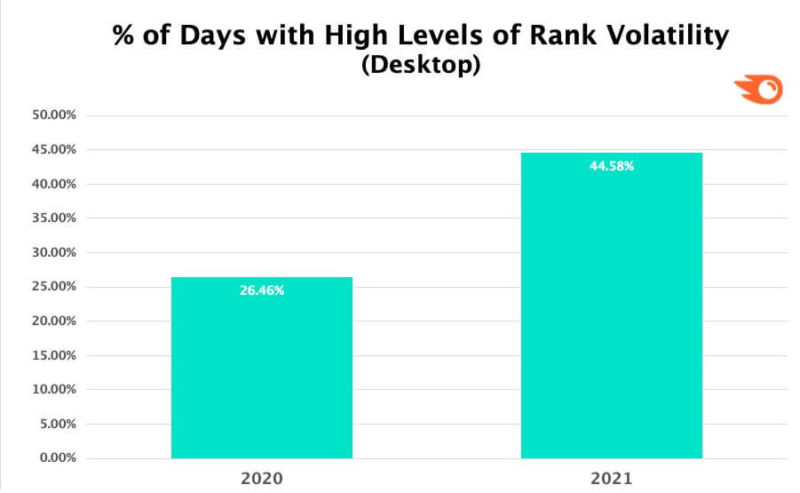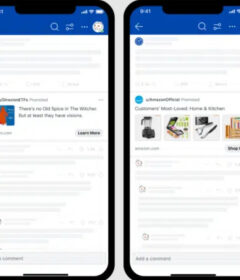New retail integrations from Microsoft and Google in time for the holidays; Friday’s daily brief

Plus, Facebook updates measurement and reporting products
Good morning, Marketers, and Facebook by any other name … will still be Facebook.
The company is planning to rename itself according to a report from The Verge. The headlines say the social media giant turned tech company wants to rebrand to focus on “building the metaverse.” We’re not sure if it’ll be an Alphabet-Google sort of name change or something more extensive.
The rebrand comes at a time when more users and advertisers are not huge fans of Facebook’s social media platform (see the story below on how Facebook is trying to remedy that). And, of course, as the tech company continues to come across regulatory cases from countries all over the globe.
Is it a business case for separating entities? Is it marketing to expand the brand beyond the social media origins? Or is it an attempt at a rebrand to keep our minds off all the bad Facebook-related news headlines? I suppose we’ll find out when the official name is announced.
Carolyn Lyden,
Director of Search Content
Microsoft partners with Shopify to help retailers expand their reach

With the updated Microsoft Channel app “Shopify merchants can easily connect with shoppers on the Microsoft Search Network and Microsoft Audience Network with just a few clicks,” says the latest announcement from the company.
Currently available in the U.S. and Canada, the Microsoft Channel app within Shopify allows businesses to show up automatically in the Microsoft Bing Shopping tab and the Microsoft Start Shopping tab for free as product listings.
Why we care. This integration and updates to the Microsoft Channel app are just another way to help small businesses, retail, and e-commerce find visibility online. The Shopify integration means that these retailers (and even those who are more experienced in selling online) will be reaching online shoppers just in time for the holiday season crunch.
Semrush data says Google search results are more volatile this year

In fact, desktop results are 68% more volatile. The data says that on desktop Google search results from January 2021 through October 2021, there is a 68% increase in the number of days showing high volatility according to Semrush. High volatility is a score of 5 out of 10 through 8 out of 10 on the Semrush Sensor tool.
Mobile is even more volatile. The data says that on mobile Google search results from January 2021 through October 2021, there is an 84% increase in the number of days showing high volatility in the mobile Google search results
Why we care. While it is not helpful to obsess over all the confirmed and unconfirmed Google search ranking fluctuations, it is useful to know when these happen. It may help you to know it is not just you going through this, but hundreds or thousands of other websites are being impacted by these updates. Plus, knowing when an algorithm update impacted your site versus maybe something seasonal or a technical mistake you made can help your SEO strategy.
Facebook Ads announces new performance, reporting and measurement products in light of iOS privacy changes
Yesterday Facebook announced new products and features to help combat the lack of data for advertisers, including an easier way to connect to the Simplified Conversions API and new features for Aggregated Event Measurement.
The new products include several major updates:
- View-through attribution is now the default. “This will provide an understanding of the types of users who may see an ad on Facebook and later make a conversion, without clicking on the ad,” said Graham Mudd, VP of Product Marketing at Facebook in the announcement.
- All business URLs will be counted. Facebook will also be updating AEM to consider all advertiser-associated URLs that auto-redirect.
- Facebook is rolling out AEM for apps. “This will strengthen your ability to measure actions that people take while using your apps, like making a purchase or achieving a new level in a game,” added Mudd.
- Advertisers will have new SKAdNetwork campaign capabilities. This update means advertisers can get a more complete view of full conversion paths.
- Conversions API setup is simplified. The new API makes setup even easier so more advertisers can take advantage of the benefits of a holistic data view.
Why we care. Many advertisers are feeling the crunch after Apple’s app-tracking privacy initiative began earlier this year. The missing data means campaigns aren’t optimized as well as they used to be and many advertisers are losing conversions. These new improvements on the Facebook Ad side are an attempt to fill that reporting and measurement gap while still maintaining user privacy.
Google extends its shopping integrations to include BigCommerce
Google has rolled out an integration with BigCommerce, the company announced Thursday. Similar to Google’s integrations with Shopify, WooCommerce, GoDaddy and Square, which were announced earlier this year, this partnership will enable BigCommerce merchants to show their products for free on Google, create ad campaigns and review performance metrics from their BigCommerce store.
Why we care. The new integration provides BigCommerce retailers with an easy way to make their listings more discoverable across Google properties, which can help drive traffic to their products. This may be especially helpful for merchants that can’t or aren’t able to dedicate extra staff or enlist the help of an agency.
Google’s latest word of the day feature is another small encroachment on dictionary sites’ SERP real estate
Yesterday Google announced a “Word of the Day” feature that will send you the definition of a new word every day. If you sign up, you’ll get a daily notification on your phone to check out a term you may not have heard before and fun facts about the etymology of each.
If this looks familiar, it’s because definition sites like Dictionary.com and Merriam-Webster have been doing this for a while now. When I mentioned this, Barry Schwartz pulled some screenshots from the Search Engine Roundtable archives:
Barry estimates that Google started showing definitions right in the search results around 2004. In 2010, Google redesigned the in-SERP definition box but linked to the different dictionary sites as sources for the terms’ meanings. But in 2013, they “upgraded” the definitions box in search results to include even more information (including origins, translations, and use over time) and to stop attributing to individual sources.
The word of the day feature seems like another small step at chipping away at these dictionary sites’ small sliver of real estate in search results. Sure, no one “owns” the definition of a word and people don’t want to click through to find it, but it makes us wonder how else these sites can innovate to stay ahead of Google’s rising tide.


